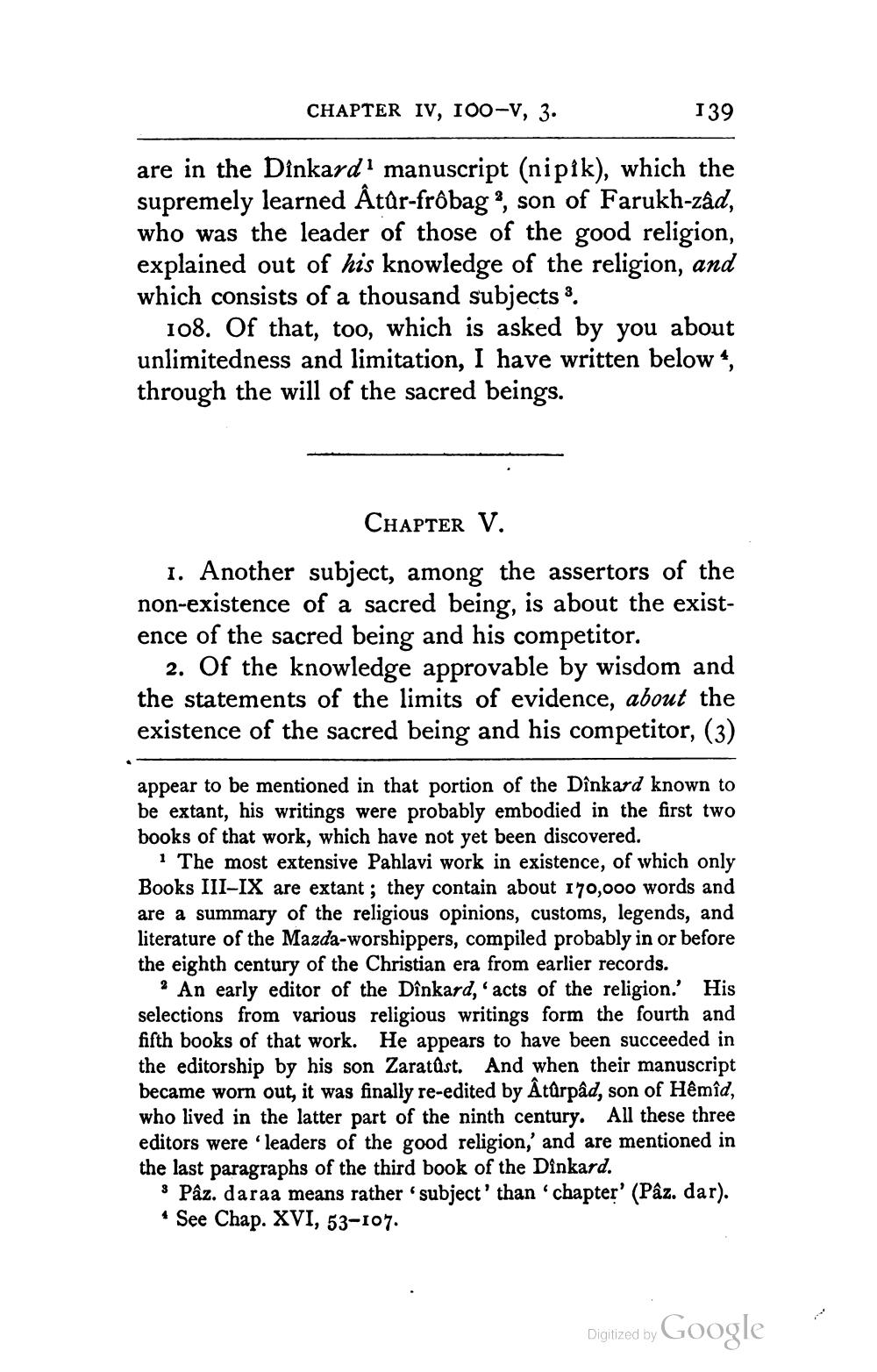________________
CHAPTER IV, 100-V, 3.
139
are in the Dinkard' manuscript (nipik), which the supremely learned Âtūr-frôbag , son of Farukh-zâd, who was the leader of those of the good religion, explained out of his knowledge of the religion, and which consists of a thousand subjects 3.
108. Of that, too, which is asked by you about unlimitedness and limitation, I have written below 4, through the will of the sacred beings.
CHAPTER V. 1. Another subject, among the assertors of the non-existence of a sacred being, is about the existence of the sacred being and his competitor.
2. Of the knowledge approvable by wisdom and the statements of the limits of evidence, about the existence of the sacred being and his competitor, (3)
appear to be mentioned in that portion of the Dînkard known to be extant, his writings were probably embodied in the first two books of that work, which have not yet been discovered.
1 The most extensive Pahlavi work in existence, of which only Books III-IX are extant; they contain about 170,000 words and are a summary of the religious opinions, customs, legends, and literature of the Mazda-worshippers, compiled probably in or before the eighth century of the Christian era from earlier records.
. An early editor of the Dînkard,' acts of the religion. His selections from various religious writings form the fourth and fifth books of that work. He appears to have been succeeded in the editorship by his son Zaratûst. And when their manuscript became worn out, it was finally re-edited by Âturpâd, son of Hêmîd, who lived in the latter part of the ninth century. All these three editors were 'leaders of the good religion,' and are mentioned in the last paragraphs of the third book of the Dinkard.
s Pâz. daraa means rather subject'than chapter' (Pâz. dar). * See Chap. XVI, 53-107.
Digitized by
Digitized by Google




